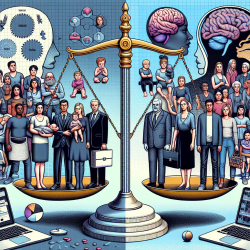Introduction
The landscape of psychiatric emergency services is evolving, with programs like the Boston Emergency Services Team (BEST) leading the charge. The research article, "Long-Term Trends in Psychiatric Emergency Services Delivered by the Boston Emergency Services Team," provides a comprehensive look at how alternative models can improve psychiatric care and alleviate the burden on emergency departments (EDs). This blog aims to help practitioners enhance their skills by implementing research findings and encourages further exploration of innovative service models.
Key Findings from the Research
The study analyzed 225,198 encounters from 2005 to 2016, revealing significant trends and outcomes:
- The proportion of psychiatric encounters in ED settings decreased from 70% to 58%.
- BEST's multi-channel approach, including specialized EDs, urgent care centers, and mobile crisis units, proved effective in diverting non-emergent cases from EDs.
- BEST primarily served publicly insured and uninsured populations, highlighting its role in providing accessible mental health services.
Implications for Practitioners
For practitioners, these findings underscore the importance of adopting multi-focal approaches to psychiatric emergencies. Here are actionable steps to consider:
- Embrace Multi-Channel Models: Consider integrating services like mobile crisis units and psychiatric urgent care centers into your practice to provide more accessible and timely care.
- Focus on Diversion Strategies: Develop protocols that prioritize diverting non-emergent cases from EDs to more appropriate settings, enhancing patient outcomes and reducing ED congestion.
- Enhance Collaboration: Strengthen partnerships with local hospitals, community organizations, and law enforcement to create a comprehensive network for crisis intervention.
Encouraging Further Research
The study highlights the need for ongoing research into alternative psychiatric emergency service models. Practitioners are encouraged to explore the following areas:
- Longitudinal Studies: Conduct studies to assess the long-term impact of multi-channel approaches on patient outcomes and healthcare systems.
- Comparative Analyses: Compare different models of psychiatric emergency services to identify best practices and areas for improvement.
- Patient-Centered Research: Focus on patient experiences and satisfaction to refine service delivery and address unmet needs.
Conclusion
The BEST program exemplifies how data-driven approaches can transform psychiatric emergency services. By implementing findings from this research, practitioners can enhance their skills, improve patient care, and contribute to a more efficient healthcare system. To delve deeper into the original research, please follow this link: Long-Term Trends in Psychiatric Emergency Services Delivered by the Boston Emergency Services Team.










